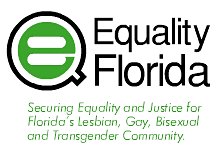 The assistant manager of a hospital department in Kissimmee was commended often and promoted twice. But in November he was fired, after what he described as months of teasing about his sexual orientation from a new boss.
The assistant manager of a hospital department in Kissimmee was commended often and promoted twice. But in November he was fired, after what he described as months of teasing about his sexual orientation from a new boss.
An employee of a large dental practice in Venice quit because he got tired of hearing his co-workers jokingly call each other “faggots.” A supervisor told a different employee that he waved “like a fairy.” No explanation was given when he was fired several months later.
A transgender woman under the care of an endocrinologist was reprimanded at work for wearing make-up on the job. Later she was told she would be fired if she did not present herself as a man.
Recent cases like these led State Rep. Holly Raschein (R-Key Largo) and State Sen. Joe Abruzzo (D-Boynton Beach) today to re-file the Florida Competitive Workforce Act (LGBT Discrimination Protections), which would modernize the state’s anti-discrimination law to include sexual orientation and gender identity or expression. [pullquote]Florida has made gains at the local level protecting LGBT people from discrimination. Currently, ten Florida counties and 22 municipalities have local ordinances that protect LGBT people from discrimination. More than half of all Floridians live in those communities. But with 57 counties still offering no protections, Florida must pass the Competitive Workforce Act.[/pullquote]
Despite polls that show a large majority of Floridians support the idea and even think it’s already the law, supporters of the measure have been unable to get a hearing in the Legislature since it was first introduced nine years ago.
But support has been growing, particularly from the business community, which has rallied behind the measure. Business leaders say a statewide law would end the patchwork of local protections and bolster the state’s economy.
“In order to remain economically competitive in a global marketplace, Florida must provide an environment that is welcoming to all. Recruiting and retaining talent regardless of their sexual orientation or gender identity will only serve to enhance our reputation and augment our economic viability,” Sen. Abruzzo said.
“It’s good for business. It’s good for recruiting the best and the brightest to Florida. We want to make sure Florida is as friendly as possible to all people, while bolstering a competitive advantage in today’s evolving marketplace,” said Rep. Raschein.
Florida Businesses for a Competitive Workforce is a coalition of 34 large employers, including Fortune 500 companies, and more than 400 local businesses that support the measure.
Coalition president Patrick Geraghty, who is Chairman of the Board and CEO of Florida Blue, said, “Business leaders across Florida applaud Sen. Abruzzo and Rep. Raschein for filing this fundamental piece of legislation that will signal Florida as an inclusive state where success is determined by hard work, and not held back by legally sanctioned discrimination.”
Florida has made gains at the local level protecting LGBT people from discrimination. Currently, ten Florida counties and 22 municipalities have local ordinances that protect LGBT people from discrimination. More than half of all Floridians live in those communities. But with 57 counties still offering no protections, Florida must pass the Competitive Workforce Act.
The cases above are from people who contacted Equality Florida for help. Without a statewide law to protect them, they had nowhere else to turn. Unfortunately, all three live in parts of Florida where that kind of discrimination is legally allowed.
Equality Florida Institute is the largest civil rights organization dedicated to securing full equality for Florida’s lesbian, gay, bisexual and transgender community.
[From a News Release]







